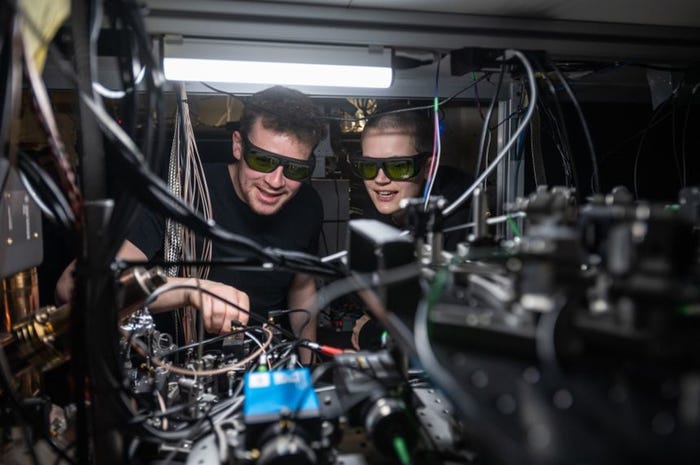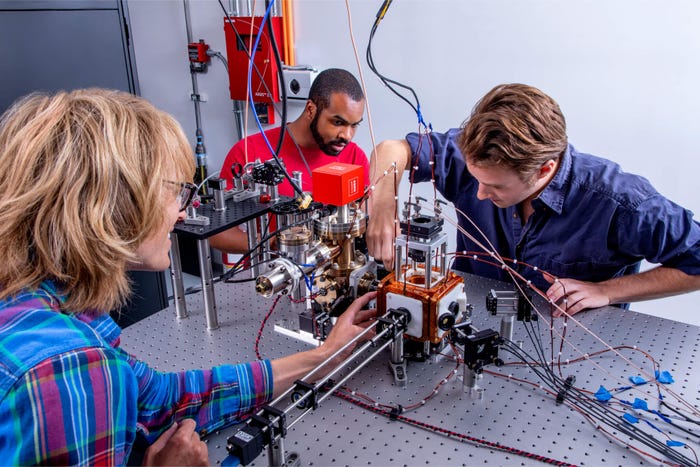
Connects decision-makers and solutions creators to what's next in quantum computing
Quantum Optimization Solutions for Aerospace EmergeQuantum Optimization Solutions for Aerospace Emerge
Better optimization of cargo loading and routes could save money, fuel and emissions, according to a Quantum Summit London panel

The utility of quantum technologies to solve aerospace optimization problems has already been proven, industry experts working on these issues told an audience at the Quantum Computing Summit London.
“Our experience is that if you have the right use case you can already use quantum for some elements, you don't have to wait three to five years,” said Unisys vice president of innovation, enterprise computing solutions Salvatore Sinno.
“This is not theoretical stuff, we are today already embedding some elements of quantum, particularly quantum annealing, inside our solution to provide advantage.”
One of the most important opportunities for using quantum technologies in the aerospace industry is for optimization. Unisys is working with the UK National Quantum Computer Centre and Newcastle University to optimize the air cargo industry.
Just 30 inches of displacement from the ideal position of the center of gravity of an aircraft when loading cargo over a flight of 6,000 miles makes a difference over four tons of fuel and the resultant carbon emissions, said Sinno. Better optimization of cargo loading can therefore save companies money and lower their emissions.
Furthermore, cargo packages loaded last minute are transported at a premium. But even using high-performance computing, airliners must close their manifest 24 hours in advance of take-off. Unisys is working with quantum computing to try to reduce that window to two hours to provide further added value for airliners.
Start-up Quantum Base Alpha is working in collaboration with the University of Edinburgh to use quantum technologies to decarbonize aviation, which represents 7% of UK emissions, by optimizing existing flight path algorithms. The project is being supported by an Innovate UK Fast Grant and is already halfway through.
Quantum Base Alpha director of research and development David Curry said the company’s work has shown some elements of quantum computing have indicated the possibility of achieving quantum advantage already.
“They’re incremental, but still important to the size of the issue we're looking at now,” he said.
However, he added that routes to funding were difficult for quantum start-ups, with access to venture capital tricky due to the timelines to market. This is why government bodies such as Innovate U.K. and Digital Catapult and Small Business Research Initiative contracts in the U.K. are important, he said.
In this respect collaboration is also vital, said Sinno.
“We couldn't do our work without collaboration with the University of Newcastle or some of the airlines we are working with. The message is that there are many opportunities for start-ups to work within large industries and each of these can contribute to the ecosystem and bring value,” he said.
Unisys has doubled its quantum team to 12 in the last year and will continue to invest in developing applications, he added.
About the Author
You May Also Like






